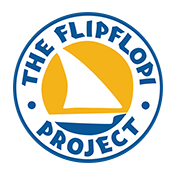Start a Sustainable Business with Plastic Waste
The amount of plastic waste globally has grown dramatically in recent years. This has only been magnified by an increase in consumption and a proliferation of single-use products such as packaging, bottles, plastic bags and plastic straws.
Across so many towns, cities, counties, and countries, waste management systems haven’t grown at the same rate. This means we have more waste than the current system knows how to deal with. This has led to a huge increase in illegal dumpsites which threaten the health of people and the environment.
Through success and failure, we’ve gathered invaluable lessons on setting up community waste projects. So now we’re sharing our experiences with the hope that they will guide you as you set up your own.
While we still need to raise awareness of the problems of disposable culture and advocate for the elimination of unnecessary single-use plastics, we also need to find a way to deal with the mess we’ve already created. And that’s something we can all act on!
“This toolkit can be used by anyone to create a circular economy business that turns trash into cash, and in the process creates green jobs and drives a green recovery.” - Dr Mandar Trivedi, British High Commission, Nairobi. Climate and Environment Adviser
Already there are shining lights as community-owned and community-run initiatives spring up, attempting to find local solutions to this growing problem. These initiatives are critical to waste management in areas where there is none. Waste pickers who for too long have remained in the shadows of society truly are on the front line of environmentalism.
Our experiences so far
We’ve supported and set up innovation hubs across East Africa, to embed waste management and circular economy solutions at a grassroots level to give plastic a second life. Our experiences range from setting up a waste collection system to creating a recycling workshop in Lamu with Takataka Heroes.
We’ve also been working along the south coast of Kenya and the shores of Lake Victoria with various groups. More recently in Nairobi, we’ve been partnering with the University of Portsmouth to assist waste management start-ups in Mukuru. Here we’ve been able to gain so much more understanding of urban waste management issues.
We have tried to gather all this knowledge amassed over years from multiple locations to funnel it into a circular economy toolkit for setting up waste management at the community level.
Thanks to the support from the UK Government and University of Portsmouth Revolution Plastics we hope this toolkit fills the gaps between the desire and the know-how to kickstart waste management projects using a circular economy approach. The toolkit lays out step by step with easy to follow guides on how you can create a sustainable project with plastic waste.
"This is an excellent tool that fills an outstanding gap in the transition to an equitable and sustainable economy: the lack of user-friendly strategies and practices to support sustainable entrepreneurs in developing countries. The toolkit succeeds in a very difficult challenge: how to unpack complex and multi-layered concepts and transform them into actionable tools and practices to start a sustainable business with plastic waste when you have very few resources to start with” - Prof. Diego Vazquez-Brust, circular economy expert and sustainability champion from the University of Portsmouth
Within the toolkit are all the lessons we and our partners have learnt over the years including, how to engage with the community, the logistics and legalities of collecting and processing waste, what plastics can be recycled and how you can create a business plan to ensure your model is sustainable.
Why we need community-led circular economies
Small scale recycling organisations can help to take the pressure off of environments and towns where local governments have been unable to keep up with the amount of waste produced. Circular economy approaches can also empower waste pickers and local communities to take control of the economical opportunities hidden in waste management.
So far in 2021, our partners Takataka Heroes on Lamu Island have already processed 40+ tonnes of plastic waste! The next question is how to make it sustainable and close the loop on plastic? These are challenges we are continually faced with. Though through partnerships and access to know-how, we hope we’re now on the path to closing the loop.
Now we know that recycling isn’t the entire solution to this global problem. We need stronger policies on plastic production and disposal. But in the meantime, we will be working to ensure as little plastic waste ends up polluting our environments as possible.


